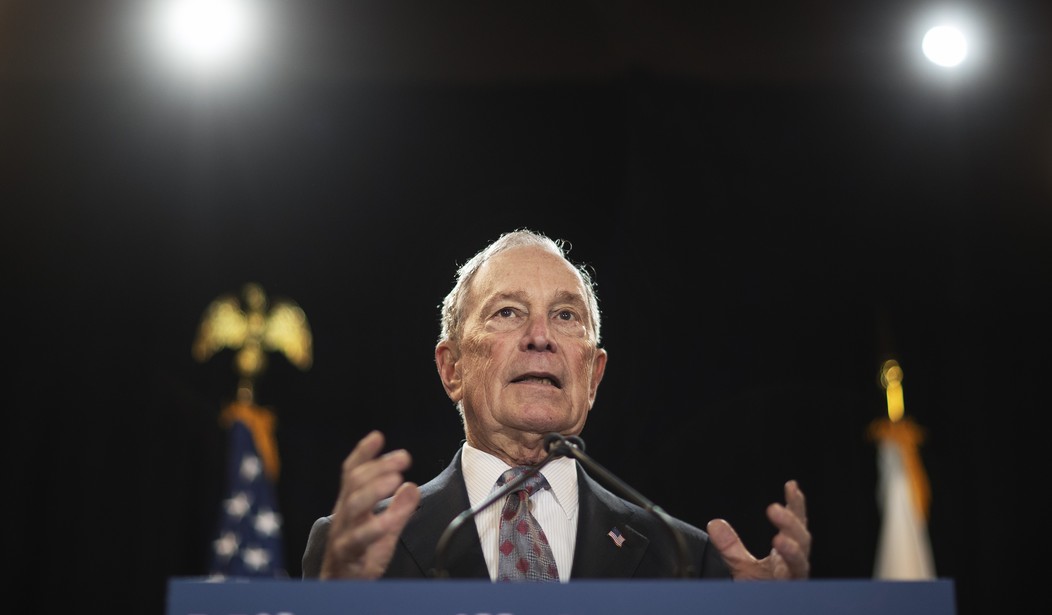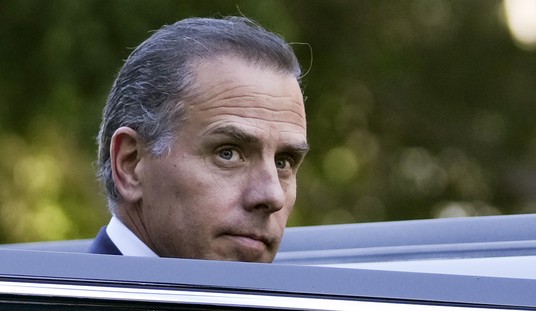Alex Clavering is a law student in New York City and one of the founders of the city’s March For Our Lives chapter. He’s a big supporter of things like red flag laws and universal background checks, but he’s also the first gun control advocate that I’ve seen who’s come out and said what many Second Amendment supporters have been saying for years: Michael Bloomberg’s stop-and-frisk policies were part of a bigger problem; gun control laws that disproportionately impacted young minority males in the city.
In a column at The Appeal, Clavering argues that Bloomberg’s crackdown on illegal gun possession was enforced through stop-and-frisk, but the underlying laws themselves are just as big an issue.
Possession of a firearm by a felon, on its own, is considered a felony crime, usually punishable by a prison sentence of several years. This is for simple possession, with no other crime involved. The law-and-order approach ignores a key reality that often those punished for this kind of crime are nonwhite and poor. There is little recourse for people involved in such cases generally. To regain possession rights, individuals need some form of pardon, expungement, or a record seal. The process to do so is not straightforward, especially not for a person with few resources.
Anecdotes never tell the full story, but they can be useful indicators for understanding how policies affect people in the real world. Ask any attorney in criminal court, and they’ll tell you a horror story about mandatory sentences related to gun possession laws. I’ve met with clients on Rikers Island and know several individuals who had virtually nonexistent and nonviolent criminal histories who will spend years of their life locked in a cage because they were in possession of a firearm. These individuals consistently shared two characteristics: They were Black and poor. Quite often, they possessed weapons out of fear of danger in their community and fear of the police. The law-and-order approach to gun violence, often promulgated in various forms, is appealing because of its simple messaging and “common sense” approach. It suffers from a severe, fatal flaw: It is unmistakably white.
I disagree with Clavering’s assertion that the flaw in Bloomberg’s approach to gun control is that it is unmistakably white. The real flaw is that it treats an unmistakeable right as a privilege, which in turn leads to the racially and economically disparate outcomes Clavering correctly points out. Even if there were no disparate impact from Bloomberg’s gun control laws, however, they would still be a violation of the constitutional rights of Americans.
Clavering isn’t ready to give up on gun control, and in fact still has at least qualified praise for Bloomberg’s groups.
This is not to criticize the meaningful accomplishments of these groups or those affiliated with them. The accomplishments of Everytown are too numerous to count, and by almost any measure objectively positive developments, like when it contributed nearly $16 million to support and win in passing Nevada’s background checks ballot question in 2016. But we can’t ignore Bloomberg’s impact on the strategies and priorities of many organizations and advocates. Even today on the Everytown website, you can find the “Statement of Principles” of Mayors Against Illegal Guns. Among them, supporting “intelligence-led policing.” With a person with Bloomberg’s history of surveillance and abuse at the helm, surely such language should give any social justice advocate pause.
Here’s my question for Clavering: what exactly was meaningful about Nevada passing a universal background check bill via referendum in 2016? The law itself was so poorly written that it couldn’t take effect, and lawmakers were forced to go back and draft legislation dealing with background checks that passed in 2019 and took effect in January of this year. The referendum in Nevada was meaningless, not meaningful.
We know that universal background check laws don’t reduce crime or even lead to more background checks. That’s been the case in Colorado, where violent crime is up by more than 25% since the background check law was implemented in 2013. Maryland also instituted universal background checks the same year, and Baltimore’s homicide rate has skyrocketed in the years since.
We also know that red flag laws don’t decrease suicides, though they may cause individuals to commit suicide by other means.
Clavering’s ready to admit that the Bloomberg agenda of criminalizing gun ownership has deleterious effects on young minority men, but he needs to dig a little deeper into some of the gun control laws that he does support. Are they really making anybody safer? Or are they just another way for politicians to promise safety and security at the expense of individual rights?









Join the conversation as a VIP Member